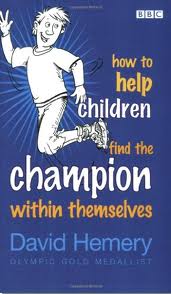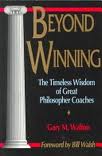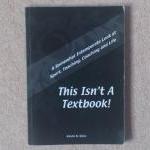Summer reading list for Coaches
What books are you reading this summer?
What are you reading this summer? Is it a book, a journal or just stuff on the internet?
Ex Prime Minister Gordon Brown on his recent trip to Africa encouraged African countries to expand their internet coverage. This is similar to a laptop to every pupil schemes by US philanthropists.
However, giving kids or families a computer and internet access without them having an educational bent has not improved learning ability in the Western World. Low income and low education families use the internet for: porn or games depending on their age group.
Giving pupils access to cheap or free books over the summer vacation actually increases educational achievement the next academic year. It prevents them for having dips in learning which can’t be made up. Other recent research states that having 20 books in the house is the number that differentiates later academic learning from early school leavers.
One theory is that teach someone how to read and then give them a book and they become a “reader”. This is a different class of person from someone who doesn’t read. Reading allows you to access the thoughts of minds and experiences greater than your own and encourages ambition and further learning. Having a computer and internet connection allows you access to entertainment and information- that is different from an ability to learn.
It is not about money- why not join your local library this summer and see what you can find?
It seems to be the time to read more books, not sure whether that is due to rubbish tv, more people on holiday, or less email traffic. Here are some of mine.
 “How to help Children find the Champion within themselves”. David Hemery
“How to help Children find the Champion within themselves”. David Hemery
This is a great little book, easy to read, but with valuable insights into coaching young people. A must read for the enthusiastic parent, or coach of yongsters.
It is broken down into sections for the parent and for the coach- how to do things at home as well as on the field. The cartoons throughout aid the process. Useful tips on the communication process.
 Beyond Winning: The timeless wisdom of great philosopher coaches. Gary Walton
Beyond Winning: The timeless wisdom of great philosopher coaches. Gary Walton
A biographical book of 6 great (mostly American) coaches: Woody Hayes, John Wooden, Vince Lombardi, James “Doc” Counsilman, Brutus Hamilton and Percy Cerutty.
The premise here is that these coaches added something more than just tactical and technical nouse to the field of coaching.The book has a chapter on each and a summary chapter of the essence of philosopher coaching.
A useful book for more experienced coaches on how they are developing their practice.
 This isn’t a textbook: A somewhat intemperate look at sport, teaching, Coaching and life. Kelvin Giles
This isn’t a textbook: A somewhat intemperate look at sport, teaching, Coaching and life. Kelvin Giles
A collection of thoughts, blogs and experiences from the past 20 years or so from this very experienced coach. Another easy read, although I made the mistake of taking it on holiday and kept reflecting on my own practices rather than relaxing. (Not to self, only take fiction and hisory books again).
It is interspersed with good motivational quotes, that break up the reading. The format may not suit a beginner, as there is no progression. I found it useful as I could relate to a lot of it. It does offer some training principles and reinforces the need for movement efficency before metabolic conditioning.
 “Don’t let the music die within you.” Wayne Bennett
“Don’t let the music die within you.” Wayne Bennett
I read the updated version by this great rugby league coach. It has insights into how he deals with the media, young players, loyalty and leadership. The writing is quite simplistic (maybe aimed at rugby league players) and is pleasant enough, but not ground breaking.
The chapter on “duty of care” is recently added and very relevant to today.
One for the fans maybe, or perhaps I have just read a lot of these types of books.
